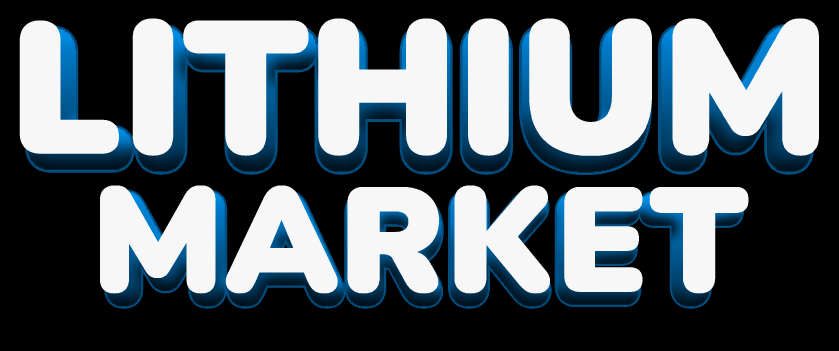Discovered in 1817 as a metal petalite by the Swedish chemist Johann August Arfvedson, lithium (Li) today is primarily associated with consumer electronics and electric vehicles (EVs). Lithium-ion batteries are heavily relied upon to power smartphones, laptops, and other portable gadgets, as well as aid energy storage and release in EVs. The market for this element is growing rapidly, with Fortune Business Insights™ estimating that the global lithium market size will reach USD 8.24 billion by 2027, exhibiting a CAGR of 9.2%.
Increasing Adoption of EVs: A Bright Future for Lithium
The ever-increasing vehicular pollution levels worldwide have created an urgent need to speed up the development of EV technologies and expand the adoption of battery-driven cars. Fortunately, these trends are already in motion in most parts of the world. According to the International Energy Agency (IEA), electric car sales stood at 2.1 million in 2019, overtaking 2018 and boosting the global EV stock to 7.2%. Moreover, electric cars also held a 2.6% share in the global car sales, making 2019 a bonanza year for the EV industry. Since EVs, whether hybrid or pure, extensively utilize Li batteries for power, the booming demand for EVs brings good news for lithium companies.
Buoyant Demand for Li-Ion Batteries amid COVID-19 Pandemic
The sudden eruption of the COVID-19 pandemic has led to catastrophic consequences for several industries. For elements such as lithium, the shocks were witnessed in the form of supply chain disruptions and sharp contractions in manufacturing activities due to lockdown and social distancing measures. However, despite these disturbances, the demand for Li batteries has remained resilient as a result of two crucial factors: the continued growth and development of the EV industry and the incorporation of lithium-based batteries in portable medical devices. In the case of EVs, healthy electric car sales amid the pandemic turned out to be the only bright spot for the auto industry. For example, as per IEA data, in 2020, the share of electric cars in total sales in Europe was 10%, while in China it was 5%. Similarly, in the US, where the car market had shrunk dramatically, electric car sales were 4% higher than 2019 levels, indicating a consistent increase in interest in EVs in the country.
On the other hand, the heightened need for medical devices to battle the pandemic has induced private companies to arm essential healthcare equipment with reliable battery solutions. In June 2020, for instance, the Israel-based smart battery developer, Epsilor Electric Fuel, supplied thousands of rechargeable Li-Ion batteries to an Israel-based manufacturer of automatic ventilation machines to fight the coronavirus epidemic in the country. Similarly, in July 2020, the startup PURE EV provided lithium batteries to healthcare technology companies across India to support the war against the pandemic. These developments have, therefore, kept the adoption of Li batteries buoyant amid the current crisis.
The business potential of lithium batteries and related technologies is enormous and a few companies are making steady headway in this industry. A brief look at some of the most recent developments can shed more light on these strategies.
Albemarle Bolsters Li Production at Nevada Site
In January 2021, Albemarle Corporation announced that it will be expanding and strengthening lithium production at its facility in Silver Peak, Nevada, in a bid to optimize the regional supply chain of the element for North American EV manufacturers. Under its expansion plan, Albemarle will begin assessing clays and other resources in Nevada to commercialize the production and distribution of lithium in the country.
Albemarle has also been at the forefront of Li research in North America. In September 2020, for example, the company was selected by the US Department of Energy as a critical partner for two energy research projects. The first project, in partnership with Argonne National Laboratory, will involve the development of a technology to move directly from lithium chloride to lithium hydroxide. The second project, conducted in collaboration with Pacific Northwest National Laboratory, aims at fast-tracking the commercialization of high-energy cathodes for extended battery life in EVs.
Avalon and Rock Tech Join Forces to Develop Lithium Process Facility
Avalon Advanced Materials and Rock Tech inked a Letter of Intent (LOI) in November 2020 to team up for the development of a processing facility for li-ion batteries in Thunder Bay, Ontario. The new facility will be structured to process Li mineral concentrates extracted from Rock Tech’s Georgia Lake and Avalon’s Separation Rapids lithium projects. The intent behind the setting up of this novel processing unit is to produce Li sulfate, a forerunner compound for Li-Ion-based batteries. Through this venture, the two companies aim at establishing an early presence in the burgeoning mining sector in Northern Ontario, which is rapidly emerging as a major hub of battery materials, including manganese, graphite, nickel, and cobalt.
in August 2020, the University of Surrey in the UK commenced work on a new Li-ion battery technology that is being engineered to capture CO2 emissions. The research will be conducted by the University following an award from the Engineering and Physical Sciences Research Council (EPSRC). The reversible, carbon-capturing capabilities of lithium-carbon dioxide are breaching the existing frontiers of battery technology and hold untold possibilities for the future of the clean energy landscape.



